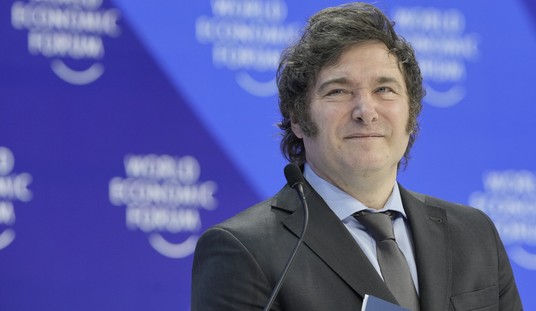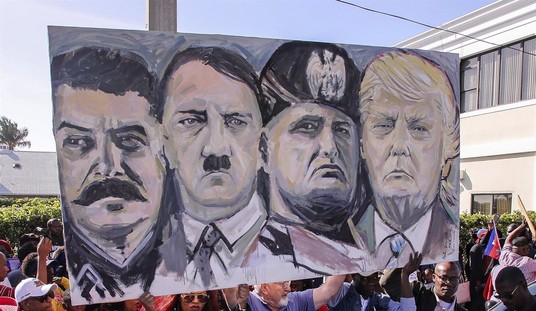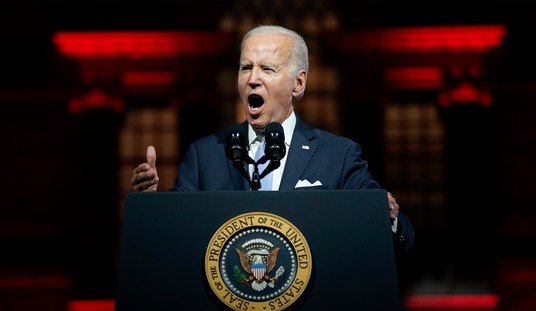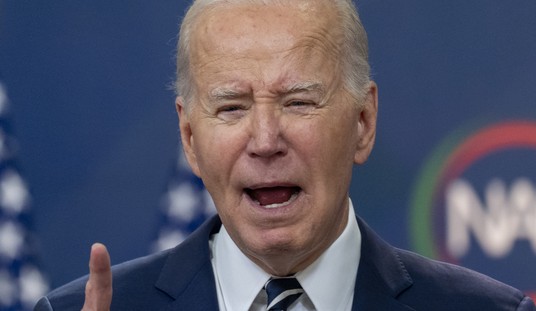Democrats have been busy derogating the recent Supreme Court decision which allegedly opens the floodgates of corporate spending on election-related advertising, somehow tainting elections. The Wall Street Journal reported this rhetoric coming from Democratic Party leadership:
President Barack Obama devoted his weekly address to the decision, calling it a victory for “special interests and their lobbyists.”
Democrats hope to paint the Republican position as favoring “even more big money and corporate special interests influencing the outcome of elections,” [Rep.] Van Hollen said [head of the House Democrats’ campaign committee].
But will the decision, in actuality, negatively impact Democrats? If not, why the negative reaction?
Enacted in 2002, the Bipartisan Campaign Reform Act (BCRA) is commonly called McCain-Feingold after its sponsors. A main feature was a ban on soft money: unlimited, unregulated contributions to national parties rather than specific candidates. On the other hand, BCRA doubled the amount individuals could contribute to candidates — from $1,000 to $2,000 — which adjusts for inflation. The bill also banned unions and corporations, including non-profits, from airing broadcast advertising 30 days before a primary and 60 days before a general election, unless the money came from political action committees (PACs), whose funds came strictly from individual contributions and not from an organization’s general treasury.
In Citizens United v. Federal Election Commission, the Supreme Court overturned the BCRA ban on using general treasury funds for “electioneering communication.”
OpenSecrets.org is the website of the Center for Responsive Politics. It features an online database of individual campaign contributions and analyzes “tens of millions of records” each year, an impressive feat of data collection honored by numerous organizations — including the National Press Club, Forbes, and Time. OpenSecrets.org believes, despite the fact that all contributions come from individuals, there is a general correlation between employee donations and their employer’s political interests:
Our research over more than 20 years shows enough of a correlation between individuals’ contributions and their employers’ political interests that we feel comfortable with our methodology.
This is a vital concept: corporations influence elections and those elected, even though they’ve been banned from contributing to candidates.
OpenSecrets.org uses a hierarchical coding system to classify contributions by industry and interest group. At the top level are 13 sectors — ten business sectors and one each for “labor,” “ideological/single-issues,” and “other.”
Analyzing federal campaign contributions by party for the presidential election cycles 1992 through 2008 highlights some interesting trends.
In 1992, these 13 sectors contributed over $588 million to Democrats and Republicans during the presidential election cycle. The 2008 total quadrupled to over $2.4 billion. Had campaign spending increased only to reflect inflation, the 2008 total would have been just over $919 million, less than double.
From 1992 to 2000 (pre-BCRA), campaign spending more than doubled, while between 2000 and 2008, it increased 66.5% over the 2000 amount. At first glance, this may indicate that BCRA slowed campaign spending growth.
| Campaign Contribution Growth, Presidential Election Cycles | |||
| 1992-2008 | Pre-BCRA (1992-2000) | BCRA (2000-8) | |
| Democrats | 323.3% | 102.1% | 109.4% |
| Republicans | 278.8% | 190.3% | 30.5% |
| Total | 303.1% | 142.1% | 66.5% |
| Inflation Index | 53.5% | 22.8% | 25.0% |
Democrats saw greater contribution growth after BCRA became law, while Republicans barely beat the inflation rate.
In 2000, the last presidential election cycle before BCRA, Democrats received 45.6% of the total; this grew to 49.7% in 2004, and 57.4% in 2008.
But where did their money come from, and what about BCRA’s influence on corporations, the alleged reason Democratic leaders now express concern over the Supreme Court decision? Analysis of selected business categories helps answer this question.
Finance/Insurance/Real Estate
OpenSecrets.org says “the financial sector is far and away the largest source of campaign contributions to federal candidates and parties.”
Top 10 corporations in this category include investment banks Goldman Sachs and Morgan Stanley, and financial service companies Citigroup and JP Morgan Chase, all of whose employees contributed well over 50% to Democrats in 2008.
Before BCRA, Republicans saw campaign contributions from this sector more than triple, while Democrats’ receipts more than doubled. After BCRA, Democrats saw their contributions nearly double again, while Republican contributions barely beat inflation.
| Finance/Insurance/Real Estate Campaign Contributions, Presidential Election Cycles | |||
| 1992-2008 | Pre-BCRA (1992-2000) | BCRA (2000-8) | |
| Democrats | 319.1% | 119.5% | 91.0% |
| Republicans | 296.6% | 206.2% | 29.5% |
| Total | 307.7% | 163.4% | 54.8% |
This sector contributed over $476 billion in 2008, with Democrats receiving 50.7%, up from 41.1% in 2000. In 2004, Democrats gained 11.9% over 2000 contributions, compared to Republicans 10.0%, increasing the Democrats’ share to 41.5%. In 2008, Democrats gained another 70.7% over 2004, compared to Republicans’ 17.7%. This may indicate an “Obama effect,” as independent voters’ growing dissatisfaction with the GOP swung them towards the Democrats, but it also shows Democrats’ growing ability to attract corporate employee contributions. Regardless of cause, Democrats’ campaign contributions overtook Republicans after BCRA.
Communications/Electronics
Top 10 corporations in this category include computer software maker Microsoft and media company Time Warner, whose employees contributed over 70% and 80%, respectively, to Democrats in 2008. Comcast employees contributed over 60% to Democrats.
This sector saw most of its campaign spending growth before BCRA, with Republicans benefiting more than Democrats. But after BCRA, Republican contributions decreased, while Democrats saw their share of this sector’s contributions increase from 53.6% in 2000, to 59.5% in 2004, to 70.2% in 2008.
| Communications/Electronics Campaign Contributions, Presidential Election Cycles | |||
| 1992-2008 | Pre-BCRA (1992-2000) | BCRA (2000-8) | |
| Democrats | 357.4% | 228.4% | 39.4% |
| Republicans | 188.5% | 321.7% | -31.6% |
| Total | 289.7% | 266.0% | 6.5% |
Democrats derived an increasing advantage, despite slowing growth in this sector’s campaign spending after BCRA.
Miscellaneous Business
OpenSecrets.org defines the miscellaneous business sector as a “catch-all” category. Major contributors within the sector include retail sales; the food and beverage industry; the beer, wine, and liquor industry; chemical manufacturers; and a wide variety of business services and manufacturing companies.
This sector contributed over $278 million in 2008. It experienced more campaign spending growth before BCRA, with Republicans benefiting more than Democrats. However, after BCRA, Republican contributions lagged inflation, while the Democratic contributions more than doubled. As a result, Democrats saw their share of this sector’s contributions increase from 39.0% in 2000, to 41.4% in 2004, to 52.8% in 2008, showing a possible mix of increasing corporate support of Democrats plus the Obama effect.
| Misc. Business Campaign Contributions, Presidential Election Cycles | |||
| 1992-2008 | Pre-BCRA (1992-2000) | BCRA (2000-8) | |
| Democrats | 388.8% | 130.2% | 112.3% |
| Republicans | 206.4% | 152.3% | 21.5% |
| Total | 281.6% | 143.2% | 56.9% |
Again, Democrats experienced a relative advantage after BCRA.
Since 2000, Democrats received consistently stronger support from the historically Republican sectors of agribusiness and defense, garnering 51.4% of the latter in 2008. In 2004, Democrats garnered a higher percentage of total contributions in 8 of 13 sectors, and in all 13 in 2008.
The Democratic Party has successfully attracted corporate employee contributions and become the party of business in its own right. Therefore, it’s likely that their sudden “concerns” over Citizens United are motivated by the desire to maintain campaign finance restrictions and continue benefiting from “business as usual.”
(For another view of campaign finance and the mystery of the “disappearing” soft money, see: “The fantasy of campaign finance reform.”)








Join the conversation as a VIP Member